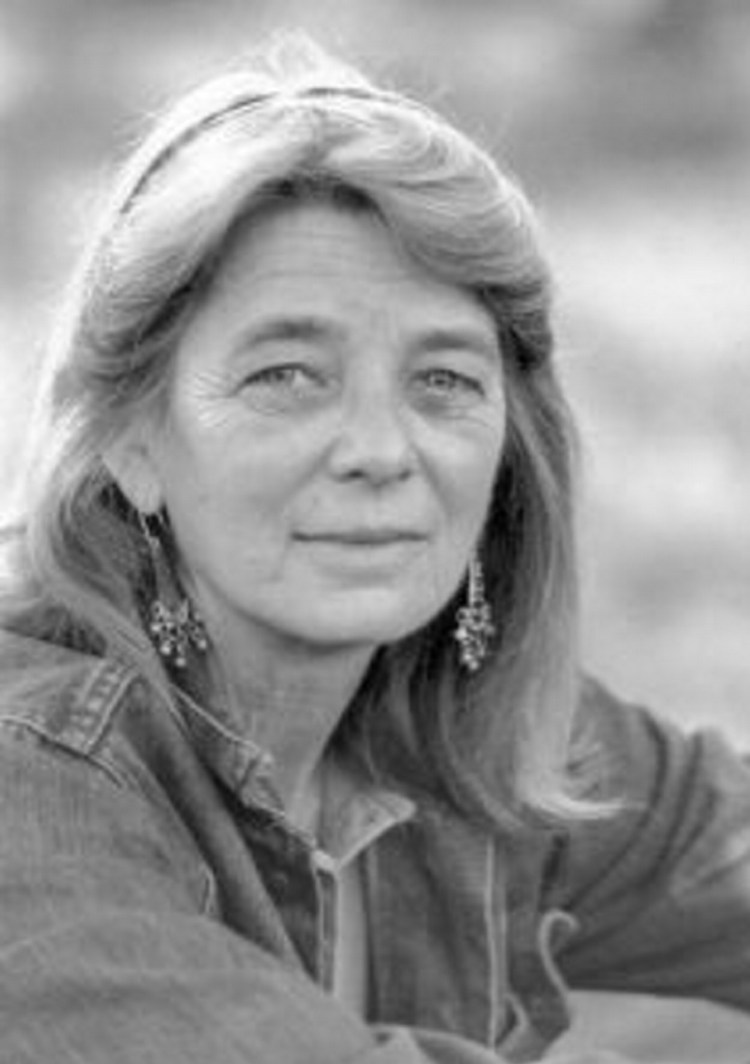MILBRIDGE — Thirty years ago, Sue Hubbell and her German shepherd, Tazzie, climbed into a red Ford F-150 and set out from Washington, D.C., on Route 60 in search of the perfect pie.
The pair’s quest, of course, was not just about sampling pies, but exploring our vast country and revealing the landscape and its people through this quintessential slice of American food.
In “The Great American Pie Expedition,” a lyrical, at times funny essay that Hubbell wrote for The New Yorker in 1989, the former Missouri farmer and beekeeper charmed readers with her findings. She took them to the Potato City Motor Inn in Potter County, Pa., where she had dug into sour cream raisin pie, and to the former Duffy’s in East Orland, where she proclaimed its blueberry pie the best she had had during the entire journey.
Fittingly, Maine was where Hubbell eventually landed, making Milbridge her home in the late 1990s. By then she had gained a following for her essays, stories and books – especially her much-praised 1986 memoir “A Country Year: Living the Questions” about her solitary, hardscrabble farm life in the Missouri Ozarks, and “A Book of Bees: And How to Keep Them.”
Fiercely independent, and loath to burden others or eventually be institutionalized, Hubbell had been grappling with dementia before moving in last August with her son, state Rep. Brian Hubbell, and daughter-in-law, artist Liddy Hubbell, in Bar Harbor.
In character, the 83-year-old writer ate her last grapefruit and declared her intent to stop eating and drinking Sept. 9. She died Oct. 13, content that she had fulfilled her wish, her son said in an email to The New York Times.
Brian and Liddy cared for Sue Hubbell during her final days. Their daughter, Nora, had been home from Boulder, Colo., and spent time with her grandmother in August.
Born in Kalamazoo, Mich., Sue Hubbell came from a long line of cantankerous, strong-willed women whom she wrote about in a 1988 “Hers” column in The New York Times magazine. “Ornery – And Proud of It” was the headline.
In her family, women had been the doers.
“The men died young, or were drifters and dreamers who disappeared or turned to drink or succumbed to melancholia or slow mortal diseases,” she wrote. “The women, on the other hand, lived a long life and were full of spit and vinegar until the end.”
Hubbell was married twice. She and her first husband, Paul Hubbell, eloped and took off for Los Angeles from snowy Kalamazoo, Michigan, in a “Cadillac drive-away.”
He was a college professor. She earned a bachelor’s degree in journalism at the University of Southern California and a graduate library science degree from Drexel University in Philadelphia.
The Hubbells eventually traded academia for living close to the land and raising bees in the Ozarks. The physical toll of farming and road trips selling honey ended the marriage.
By the time Sue Hubbell moved to Maine, she had produced a rich body of work over the years in newspapers, magazines and The New Yorker, The New York Times, St. Louis Post-Dispatch, Time, Harper’s, Smithsonian and many other publications. Her topics ranged widely from a chicken babysitter and egg hustling to wrenches and blue morpho butterflies.
What made Hubbell’s work memorable was her lyrical prose, laced with razor-sharp wit and meticulous research.
Maine writer Susan Hand Shetterly read “A Country Year: Living the Questions” after she and her husband and two children had moved to a house in the woods of Surry. They had previously lived for a decade outside Prospect Harbor.
“It was a lonely book, I think, but also a joyful one and it was tough,” Shetterly said last week. “She turned a twist of fate into a victory for herself as a woman who could do a lot of things well. And one of the things she could do beautifully was write.”
Hubbell remarried to an old college classmate, Frank Sieverts, who died in 2004. In Milbridge, where she had extolled the Milbridge House restaurant’s Nantucket cranberry pie, she continued to write, split wood, enjoy her dog’s company and tinker with her house. She also led a successful campaign to establish an endowment fund for the local library.
Her New Yorker piece about pies, though, may be how she is remembered across the nation. Hubbell and Tazzie’s freewheeling quest abruptly ended when they crossed into Oklahoma. Stopped for speeding, she naturally quizzed the state trooper about pie.
“And he thought about it and he said, ‘Sorry, ma’am, but you’re in cobbler country now,” Hubbell said in a National Public Radio interview. “So I knew the expedition had ended.”
Send questions/comments to the editors.



Comments are no longer available on this story